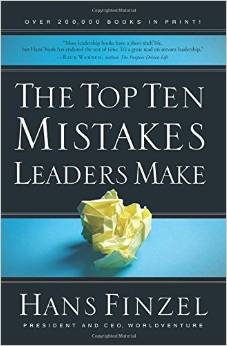At the beginning of August, my wife and I had the chance to share in a unique camping ministry at Lake Ann Bible Camp outside of Travers City, Michigan. Knowing this was coming up, we took the family on a cross-country roadie, taking in the sights of the upper midwest, and allowing us some time to visit old friends. It was an amazing, memory-making experience. The highlight for almost all of us was the time we got to spend at Lake Ann. The three older kids (Tati, AJ and BJ) were privileged to spend the week as campers, while Celina received some much-desired alone time with Traci and me at the speaker’s cabin. The students I spoke to were really receptive, and the whole week was great.
But one of our camping highlights came from a surprising source. Lake Ann does this cool visual lesson using the skills of a “horse whisper”. This man and his wife bring in four very different horses and illustrate the power of leadership and followership, by showing how each horse learns to trust and follow the wrangler. It’s a captivating exercise to watch.
While I was a little skeptical at first, I was soon roped-in (I couldn’t resist that pun...sorry) to the process. First, the wrangler would use a series of sounds made by the smacking of his whip on barrels or fence posts, in order to move the horses to one corner of the corral. Once the horses were herded into one of the four corners, he worked to separate out one from the rest of the herd. Each horse’s “horsenality”* leadership and followership* styles soon emerged.
I could easily blog about each of the four horses, and maybe someday I will. For today, however, I want to focus on a horse named “Paco”. Paco was the leader of this little herd, and it was fascinating to watch him try and control the other horses, even encouraging them to defy the orders of the wrangler. He had a special affinity for one particular horse in the group, and he repeatedly moved between that horse and the wrangler making it challenging for Mark to do his work.
In fact, it was interesting how the other three horses always looked back toward Paco and the herd each time Marc gave them instructions. Instead of following the skilled wrangler fully, they constantly turned their heads toward Paco, almost like they were seeking his approval more than Marc’s. In fact, they were almost ashamed to be following him instead of the leader of their herd, and each of the first three horses, when they finally “consented” to trust and follow Marc, approached him with head down with a look of fear and concern.
Seriously, you could see the distinct look of fear, concern and humility as they approached Mack when he finally garnered their trust.
That all changed with Paco.
Paco was the last of the four horses. Since the other had already been separated from the herd, it wasn’t hard for Marc to get Paco to come to him. But unlike the other three, Paco didn’t come with his head down, or his tail hanging limp. He stood tall. He came eyeball to eyeball with Marc and seemed almost eager to follow. I couldn’t believe it. For the previous 30+ minutes he had done everything he could to keep Marc from influencing the other horses and now he was showing total obedience. Almost like he was proud to obey! In fact, every few minutes he would glance over to the holding tank where the other three horses were being kept, making sure they were watching him.
Marc was mic’d up for the whole experience and he began to explain why Paco was so eager to obey. It wasn’t because he was the last horse. It wasn’t because he was trained to behave like this. It wasn’t even because he was hoping to get something good to eat afterward (the horses were in fact, not rewarded for their work). Instead, Paco was following in the manner in which he expected the other horses to follow him. He was a leader, teaching followers how to follow. His leadership and followership were linked.
Without question, Paco was the leader of the herd. And equally without question, Paco knew how to follow. And part of his duty as a leader involved the capacity to follow and to teach his herd to do the same. While at first he sought only to protect them, and to preserve his own leadership status, when it became clear that following was inevitable, he did so in a way that modeled followership to others. He modeled the very behavior he expected others to demonstrate when he led.
There’s an important lesson there. The best leaders aren’t the biggest bosses or Type-A driven doers. It’s nice to have a good strong boss, or to have a leader that knows where she is going and how she wants to get there. But that’s not what makes a leader great. After watching Paco in action, I realize that great leaders know how to follow, and know how to teach their constituency to do the same. They don’t have to be pushy or bossy – they live out what they expect from others. Like Paco, they know how to lead, because they know how to follow. They understand what it means to trust others, to follow instructions, and ultimately they draw their leadership from their experiences.
As we walked away from that unique experience, my wife and I were talking about how obvious it suddenly seemed. After all, isn’t that precisely how Jesus led? In Philippians 2 the Bible says He took the path of obedience from the Father, choosing to live and die as He experienced humanity in all of its imperfections (while He Himself remained perfect!). But by choosing obedience, He modeled for us the very life He expects from us – humble obedience to Him, our Lord and Savior. His example as the supreme leader, teaches us how to follow, and equally, how to better lead.
Amazingly, the Bible says Jesus was perfected through His suffering (volumes of books have been written on that topic, and I’m not about to touch it here!), making Him the ultimate sacrifice for our sins. And how did the world’s greatest leader become the atoning sacrifice for the entire world? Through His unrestrained followership.
I think we should spend less time looking for leaders and trying to analyze people’s abilities to lead when we hunt for directors, pastors and vision-casting CEOs. I think we should start spending more time on learning how well people follow. We should start designing tests to analyze a person’s follower-IQ, knowing that the better a person can follow, the better understanding they’ll have of leading.
Of course, not everyone is cut-out for significant leadership roles, but everyone is cut-out for following in one role or another. How are your followership skills developing? Jesus is out on the water, calling you to grab the sides of the boat and jump -- asking you to trust His lead even in the storm. Others are watching you and will follow, but you've got to follow Jesus first before you can lead others to do the same.
Go ahead and take the plunge, life is better on the water!
* Horsenality: Just as humans possess personality, horses posses horsenality. The nature of a horse is it's horsenality.
* Followership: I'm annoyed that this word gets underlined by my auto-spellcheck. It really should be a word, thus, we have deemed it so. "Leadership" is comprised of two words. "Lead" and "ership". Throughout history, this phrase was heard more than once in the shipping industry: "There goes the Lead 'ership out the harbor" in reference to the first ship into the bay** Similarly, the word "Followership" is made up of two words, "Follow" and "ership". It too was used in the harbors-of-old when sailors would say, the "Lead 'ership has gone, let's follow 'ership to sea!"***
** There is actually no historical record that says anything of a sort. However, if that record should be discovered, I'd like it noted that this blog announced it first.
*** see previous note.





